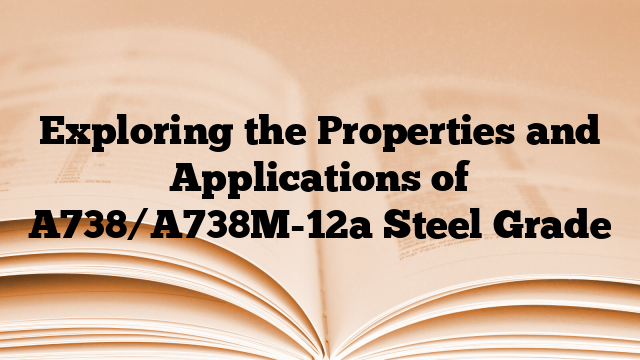A738/A738M-12a is a steel grade that is commonly used in the construction industry. It is a low-carbon, manganese-molybdenum-nickel alloy steel that exhibits excellent mechanical properties and high impact toughness.
The chemical composition of A738/A738M-12a steel grade is as follows:
– Carbon (C): 0.12% max
– Manganese (Mn): 0.70-1.35%
– Phosphorus (P): 0.035% max
– Sulfur (S): 0.035% max
– Silicon (Si): 0.15-0.50%
– Nickel (Ni): 0.45-0.60%
– Molybdenum (Mo): 0.45-0.60%
These elements contribute to the strength and toughness of the steel. The low carbon content helps to improve weldability, while the manganese, nickel, and molybdenum enhance the steel’s overall toughness and impact resistance.
The mechanical properties of A738/A738M-12a steel grade include:
– Tensile strength: 485-620 MPa
– Yield strength: 345 MPa min
– Elongation: 18% min
– Impact energy: 27 J min
These mechanical properties ensure that the steel grade can withstand heavy loads and resist fracture or deformation under high-stress conditions. It is suitable for use in pressure vessels, boilers, and storage tanks in various industries, including oil and gas, chemical, and power generation.
A738/A738M-12a steel grade conforms to the ASTM A738/A738M standard, which specifies the requirements for nickel-alloy steel plates intended primarily for welded pressure vessels. This standard ensures the consistent quality and performance of the steel grade in different applications.
In summary, A738/A738M-12a steel grade is a low-carbon alloy steel with excellent mechanical properties and high impact toughness. It is commonly used in the construction of pressure vessels and storage tanks in various industries. The steel grade conforms to the ASTM A738/A738M standard, ensuring its quality and suitability for different applications.

